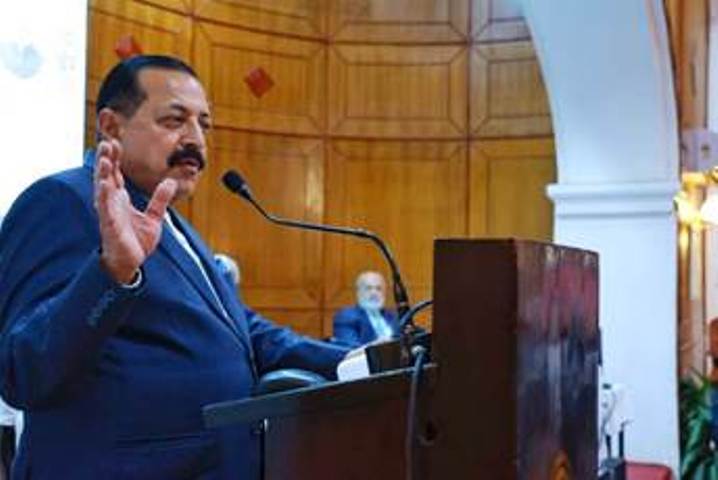India's Pharma and Biotech Sectors Poised for Global Leadership: Dr. Jitendra Singh
"Make in India" Initiative Reduces Dependency on API Imports and Strengthens Self-Reliance

- Country:
- India
India’s "Make in India" initiative is playing a critical role in reducing dependency on imported Active Pharmaceutical Ingredients (APIs) and reinforcing the country’s self-reliance in healthcare, said Dr. Jitendra Singh, Union Minister of State (Independent Charge) for Science and Technology, during the 6th CII Pharma & Life Sciences Summit 2024 today. He emphasized that the initiative has bolstered domestic manufacturing and ensured the availability of essential healthcare supplies.
Speaking at the summit, Dr. Singh said, “India is now a global leader in pharmaceutical production, ranking 3rd by volume and 14th by value. The country has transitioned from a generic-based industry to a hub for biopharmaceuticals and biosimilars, demonstrating its growing capability in high-quality medicines."
India's Leadership in Biotech and Pharmaceuticals
Dr Singh highlighted India's readiness to lead the next industrial revolution, driven by breakthroughs in the biotech sector, noting that Prime Minister Narendra Modi aims for the country to spearhead this transformation. With PLI (Production Linked Incentive) schemes and strategic investments, India is positioning itself as a global leader in biopharmaceuticals, bio-manufacturing, and life sciences by 2030.
He commended CII and the life sciences industry for their success, urging continued focus on research and development (R&D) and opportunities for growth in biotechnology. India’s progress is exemplified by achievements like the development of the world’s first DNA vaccine for COVID-19 and efforts to introduce the first Human Papilloma Virus (HPV) vaccine for girls to prevent cervical cancer.
Ensuring Quality and Expanding the Bioeconomy
India’s pharmaceutical reputation is further reinforced by stringent quality control, as demonstrated by a recent Central Drugs Standard Control Organization (CDSCO) survey. With a spurious drug incidence of just 0.0245%, India remains a reliable source of affordable and effective medicines. Dr Singh emphasized the importance of upgrading infrastructure to ensure efficient transportation of pharmaceutical products across diverse climatic regions, which is crucial for maintaining drug efficacy.
India’s bioeconomy has expanded 13-fold in the last decade, driven by a thriving ecosystem of nearly 6,000 bio-startups. To sustain this momentum, Dr. Singh called for continued investment in R&D, encouraging young entrepreneurs, and fostering a strong startup ecosystem.
Future Prospects with Anusandhan National Research Foundation (ANRF)The establishment of the Anusandhan National Research Foundation (ANRF), with a ₹50,000 crore budget over five years, marks a crucial step in fostering a knowledge-driven society. This initiative will bridge infrastructure gaps in universities and enhance industry-academia collaboration, particularly in advanced fields like materials science, electric mobility (EV), and health technology.
In conclusion, Dr. Singh underscored the vast potential ahead, urging stakeholders to capitalize on India’s growing leadership in global healthcare, with the ambition of further transforming health outcomes worldwide, especially for low- and middle-income countries.










